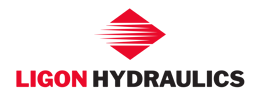Benefits of Vertical Integration in Hydraulic Cylinder Supply Chains
With supply chain disruptions persisting for reasons you undoubtedly know all too well and that are too numerous to mention here, vertical integration has its benefits. At Ligon, our ability to control hydraulic cylinder production from raw materials procurement to design and manufacturing to delivery results from being in a family of companies that offer a variety of specialty cylinders. This family means you can get a variety of cylinder types from one simple supplier relationship.
Additionally, we own our own foundry and chroming facilities so we can provide customers like you with better turnaround time and quality than you can get by relying on multiple suppliers or a supplier that subcontracts work in the usual way. This key benefit allows you to meet your production goals and keep your customers loyal in an environment where second chances are becoming increasingly rare.

By our count, there are 10 benefits to working with a vertically integrated supply chain partner. They are:
- Improved Cost Control. By owning multiple “links” in the supply chain, companies can reduce costs by eliminating the need to work with external partners that charge a premium for their products or services, and who may not prioritize your needs over others’ because the relationship is purely transactional rather than family-like.
- Improved Quality Control: Vertical integration allows for better control over the quality of materials and processes because each step is under the direct supervision of a single company or companies that have close connections to one another. This dynamic can be especially significant in engineering and manufacturing, where meeting high standards is necessary for the safety and functionality of a hydraulic cylinder and any other product that comes to mind.
- Better Supply Chain Coordination: Bringing together various stages of production is easier when fewer parties are involved. This streamlining of engineering, manufacturing, quality inspection, packaging, and shipping can lead to production schedules that reduce lead times and communication errors that can result in the need for rework and cause delays.
- Increased Market Responsiveness: Companies can respond more quickly to changes in customer demand or market conditions. This flexibility can be a significant competitive advantage in today’s business environment where everyone expects to have The Amazon Experience (instant gratification), even in the traditionally slow-moving industrial procurement process.
- More Secure Supplies and Less Risk of Disruption. Owning the supply sources or having contracts for purchasing large volumes of raw materials or components can increase the probability of receiving inputs by agreed-upon dates and reduce the likelihood of missing production deadlines because of logistics issues.
- Streamlined Innovation. With all processes under one roof or within a family of companies, it is easier to conceive and manufacture products with features and benefits that are unusual or unique. Additionally, changes to specifications whether related to design, materials, or processes, can be integrated with production more easily and quicker than would be possible otherwise.
- Greater Competitive Advantage. When a product is manufactured entirely by one company or by a family of companies instead of being handled by unrelated companies throughout the development and production cycles, it is more difficult for competitors to replicate a product. If fewer companies handle a product during the design and production phases, fewer companies will have access to the product’s specifications and to the product itself, which a company can “reverse engineer” to try to gain a competitive edge. When it comes to celebrations, the more the merrier, but in the case of sourcing hydraulic cylinders and other industrial products, the fewer the better.
- Enhanced Capacity Utilization. Through vertical integration, companies can manage their production schedules more efficiently because there is no time, or relatively little time, between production steps due to operations being performed under one roof or better throughput forecasting due to closer coordination among people in divisions of the same company or sister companies.

- Opportunities for Diversification: By controlling more stages of the production process, a company can leverage its capabilities to introduce new products, or new product lines, more easily than it could by focusing on specific aspects of manufacturing. Because we have access to “the big picture,” our engineering and product development teams have expanded our product lines because of helping customers meet a particular need.
- Stronger Customer Relationships. By managing the design and manufacturing processes from start to finish, a vertically integrated company can offer better customer service, more custom product options, and quicker problem-solving or prevention, which result in long-term partnerships that create mutually beneficial loyalties up and down the supply chain that add stability to an increasingly unpredictable business environment.
To discuss how our vertically integrated operations...




